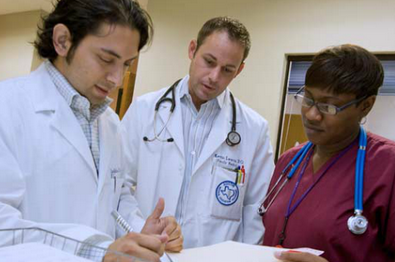
EHF has made a $1 million investment in Dell Medical School at The University of Texas at Austin to develop and integrate a training curriculum that focuses on overall patient health – not just providing medical services.
This value-based health care curriculum emphasizes quality and health outcomes, not the volume of services provided and billed to a patient. It is being developed for medical students, residents and practicing physicians.
“Today’s health care system is expensive and doesn’t always produce optimal health outcomes for patients,” said Elena Marks, EHF’s president and CEO. “Reforming health care starts with orienting physicians to focus on outcomes over outputs, and we believe this unique training curriculum will change the way doctors think about their work. It’s a renewed focus on health, not just healthcare.”
The Dell Medical School will train its faculty leaders to teach value-based healthcare and incorporate it into training for medical students, residents and current physicians. The plan also includes hiring an associate dean/director of value-based care to oversee implementation at every level.
This investment is one of EHF’s largest single grants to date and represents the Foundation’s continuing support of innovation and long-lasting improvements to community health in Texas.
“We’re making this type of investment in this curriculum because we strongly believe it will be transformational for doctors, the entire health system and ultimately all of us,” said the Rt. Rev. C. Andrew Doyle, Bishop of the Episcopal Diocese of Texas and chair of EHF’s board of directors.
“You wouldn’t think you’d need to teach value to clinicians, but it hasn’t been part of training in med school or afterward,” said Dr. Clay Johnston, inaugural dean of the Dell Medical School. “Getting folks thinking about how to take better care of people, to really care about quality and the experience, and to avoid waste – it’s a critical need.”
The value-based curriculum will be incorporated into all four years of training for medical students. The project also includes a value-based “track of distinction” for Dell Medical School residents that’s different from traditional residency programs. The specialized track provides extended study, periodic lectures and participation in the Harvard Business School Intensive Value-Based Health Care Symposium.
“We believe this unique training will attract future physician leaders interested in being part of the solution,” Marks said. “It’s a solution that has the opportunity to create more efficient and accessible models of care that can dramatically improve community health and reduce excessive costs.”